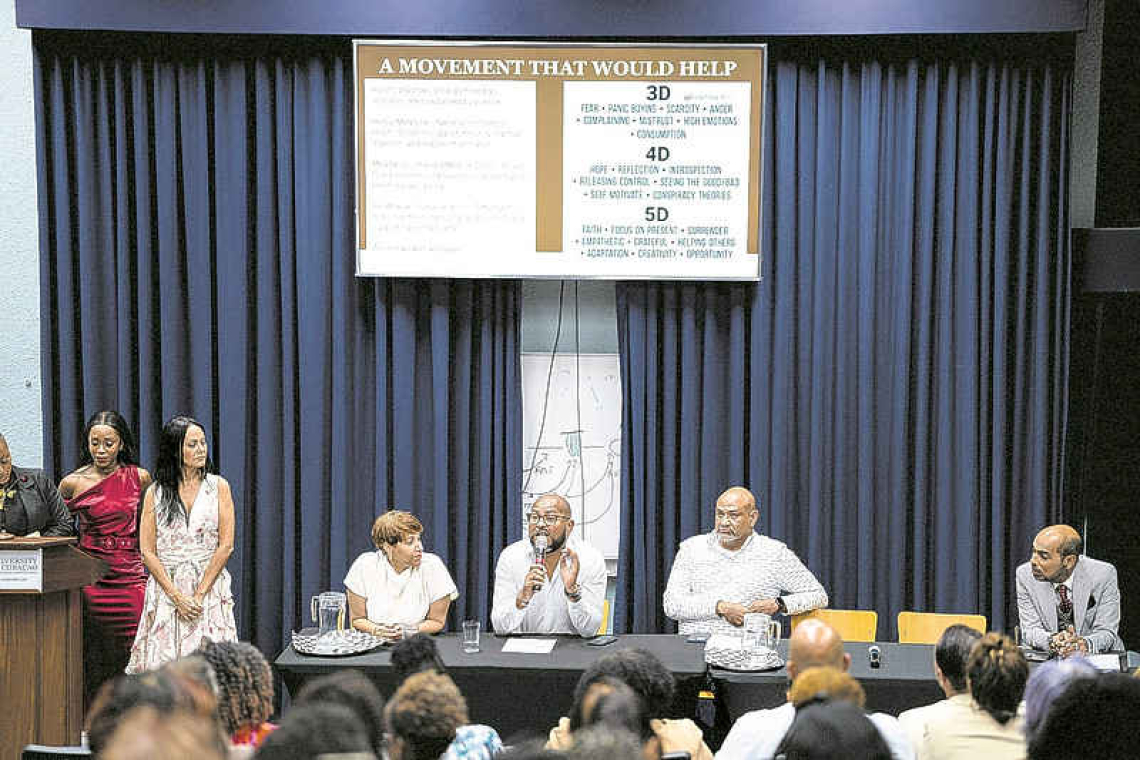View of the gathering
WILLEMSTAD--Misconduct and inappropriate behaviour in the workplace are costing Curaçao millions of guilders annually in lost productivity, increased absenteeism and employee turnover. Far from being a purely social concern, the issue poses a significant and chronic economic risk to the country. That was the central message delivered by Raul Henriquez, Director and Secretary-General of the Social Economic Council SER, during a public seminar held on April 29 at the University of Curaçao by health and workplace advocacy group OneCare.
Citing recent survey data, Henriquez reported that more than 80% of employees surveyed in Curaçao had experienced some form of workplace misconduct, including harassment, bullying, or verbal aggression. Nearly half reported calling in sick due to such incidents, and over one-third ultimately left their organization.
“This is not a collection of isolated incidents,” Henriquez said. “It is a structural and underestimated phenomenon with clear macroeconomic consequences.”
Forecasts indicate that psychosocial insecurity at work leads to significant economic damage. For Curaçao -an island with a relatively small workforce and an economy heavily reliant on service sectors such as tourism, construction and healthcare- such losses are untenable.
“A toxic workplace culture translates directly into lower productivity, reputational harm, and the depletion of human capital,” Henriquez warned. Both international research and regional data confirm the scale of the economic impact.
As the country’s highest advisory body on socioeconomic matters, SER called on employers, government agencies, social partners and civil society organisations to take concerted action to promote a safer workplace environment. Henriquez advocated for the legal codification of psychosocial protection, the strengthening of reporting structures and greater investment in prevention, employee training and regulatory oversight.
“Social safety in the workplace is not optional,” Henriquez stated. “Investing in a healthy and respectful workplace culture is an investment in productivity, resilience, and collective progress.”
The seminar was attended by representatives from the private sector, government, academia and civil society. It forms part of a broader public awareness and policy campaign led by OneCare and the SER to address workplace safety and dignity across the island.







